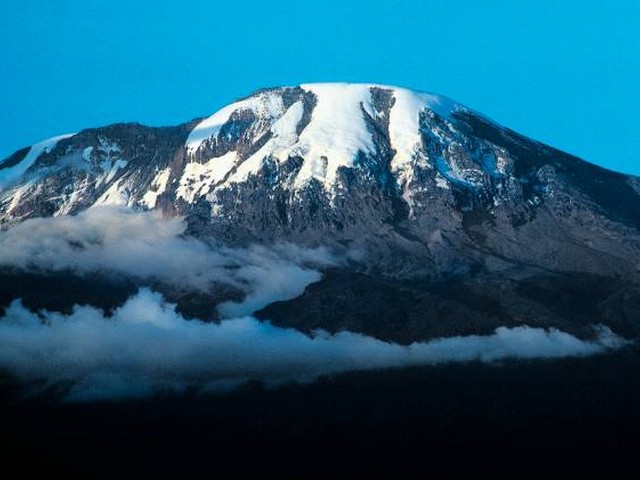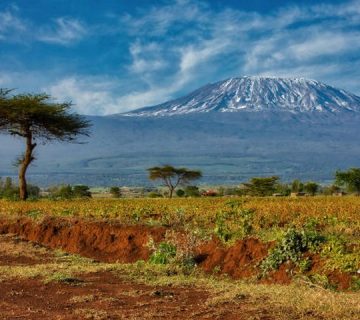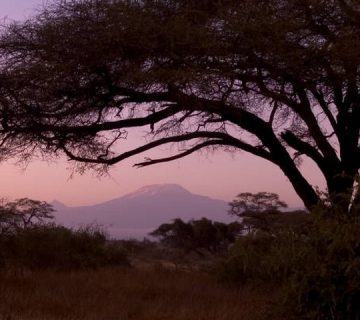Climbing Kilimanjaro: Tackling Altitude Sickness and Embracing Essential Health Precautions
Reach New Heights Safely: Understanding Kilimanjaro Altitude Sickness And Health Precautions
The majestic Mount Kilimanjaro is not just a mountain; it’s a beacon of adventure, challenging both the body and the spirit. However, the journey to its summit is not without its challenges, the most notable being altitude sickness. At Kilimanjaro Centre for Trekking and Ecotourism (KCTE), we understand the allure of Kilimanjaro and the importance of scaling it safely. This guide will arm you with crucial information on preventing Kilimanjaro altitude sickness and ensuring a healthy climb. Whether you’re a seasoned climber or a first-time trekker, our insights will help you conquer this giant with confidence and good health.
Understanding Altitude Sickness on Kilimanjaro
Altitude sickness, or Acute Mountain Sickness (AMS), is a reaction to the lower amounts of oxygen available at high altitudes. The rapid ascent can cause mild to severe symptoms, including headaches, nausea, dizziness, and difficulty sleeping.
Why It Matters on Kilimanjaro
Mount Kilimanjaro stands proudly at 5,895 meters (19,341 feet), making it the highest peak in Africa. The climb encompasses diverse ecological zones, from lush rainforests to alpine deserts, each presenting its unique challenges. As you ascend, the air becomes thinner, and your body must adjust to decreased oxygen levels. This adjustment period is critical, and without proper acclimatization, climbers can experience altitude sickness.
Key Strategies to Prevent Altitude Sickness
Prevention is better than cure, especially on Kilimanjaro. Here are several strategies to help mitigate the risk of altitude sickness:
Gradual Acclimatization
Our guided treks are designed to allow your body to acclimatize naturally. We recommend routes that offer a slower ascent and provide extra days for acclimatization. This gradual climb increases your chances of a successful summit.
Hydration is Key
Staying hydrated is crucial. Dehydration decreases your body’s ability to acclimatize effectively. Drink plenty of water starting days before your trek and continue throughout your climb.
Listen to Your Body
Recognize the symptoms of altitude sickness early. If you feel unwell, inform your guide immediately. KCTE’s experienced guides are trained to spot and manage altitude sickness symptoms, ensuring your safety and health.
How KCTE Supports Your Healthy Climb
At KCTE, we prioritize your health above all else. Here’s how we support you during your Kilimanjaro adventure:
Expert Guides and Porters
Our team comprises local experts who are not only passionate about Kilimanjaro but also trained in emergency first aid and altitude sickness management. They ensure that your climb is safe, enjoyable, and successful.
Medical Check-Ups
Before and during the climb, our guides conduct regular health checks to monitor your well-being. This proactive approach helps us make informed decisions about any necessary adjustments to your trek.
Quality Gear and Equipment
KCTE provides high-quality, well-maintained gear and equipment to withstand the harsh conditions of high altitude environments. From sleeping bags to tents, our gear is designed to keep you warm, dry, and comfortable.
Essential Health Tips for Climbers
Beyond preventing altitude sickness, here are some general health tips to consider:
Physical Preparation
Start a fitness regimen months before your climb. Focus on cardiovascular, strength, and endurance training. Being in good physical shape can significantly ease the strain of the climb.
Dietary Considerations
Eat a balanced diet while climbing. Our meals are designed to provide the energy needed for the strenuous activity and to aid in acclimatization. Don’t forget to include plenty of carbohydrates.
Mental Preparation
Mental resilience plays a crucial role. Prepare yourself mentally for the challenge ahead. Stay positive and motivated, and remember, our team is with you every step of the way.
Why Book Your Climb with KCTE?
Choosing the right tour operator can make all the difference on your Kilimanjaro journey. Here’s why you should book with KCTE:
- Safety First: Your safety is our top priority. We have an impeccable safety record, thanks to our skilled guides and stringent health precautions.
- Local Expertise: Benefit from the deep local knowledge that only indigenous experts can provide. Our team knows Kilimanjaro like the back of their hands.
- Sustainable Practices: We are committed to preserving the beauty and integrity of Mount Kilimanjaro through eco-friendly practices and community involvement.
Frequently Asked Questions
Q: How do I know if I’m experiencing altitude sickness?
A: Symptoms include headaches, nausea, dizziness, tiredness, loss of appetite, and shortness of breath. Notify your guide immediately if you experience any of these symptoms.
Q: Can I take medication to prevent altitude sickness?
A: Medications like Acetazolamide can help prevent altitude sickness. However, consult with your doctor before taking any medication.
Q: What is the best time of year to climb Kilimanjaro?
A: The optimal times are during the dry seasons, from June to October and January to March. These months offer the most favorable weather conditions for climbing.
Conquer Kilimanjaro with Confidence
Now that you’re armed with vital information on navigating the challenges of altitude sickness and maintaining your health on Mount Kilimanjaro, you’re ready to embark on this incredible adventure. With KCTE, you’re not just climbing a mountain; you’re creating unforgettable memories while being supported by the best. Ready to take on the roof of Africa? Book your Kilimanjaro climb with Kilimanjaro Centre for Trekking and Ecotourism today, and let’s reach the summit together!




